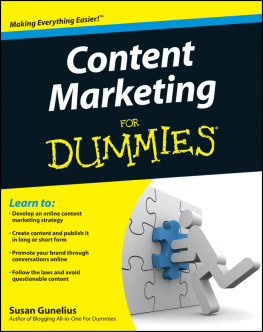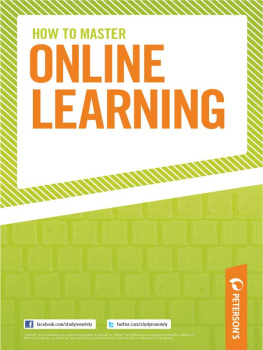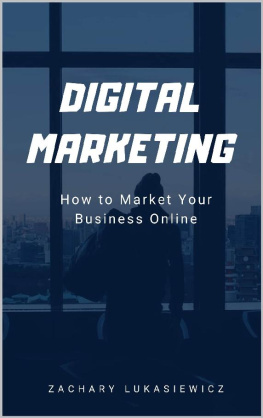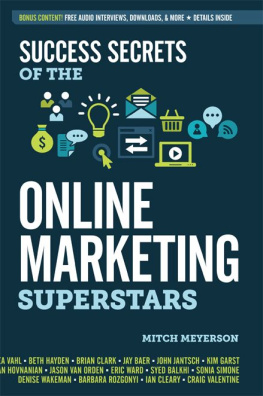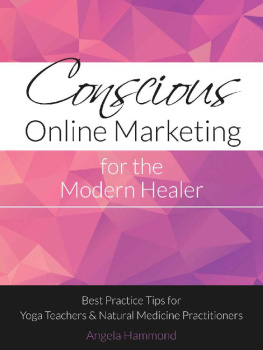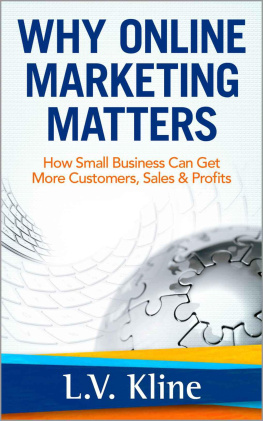Online Marketing for Hotels: The Definitive Guide to Direct Distribution
How to get the most out of your advertising money and boost website revenue
Jan Sammeck, Frankfurt am Main 2019
1st Edition
All rights reserved
Schumannstrasse 49
60325 Frankfurt am Main
Email: jansammeck@protonmail.com
ISBN: 9781798527870
Table of Contents
Introduction
Who Should Read This Book?
This book intends to reach a very specific audience: hoteliers and online marketers working in the hospitality industry. Within this audience, it aims at reaching those individuals with the dedication and drive to take their online distribution to the next level. If you are interested in gaining a deeper understanding of the means available to hotels in online marketing, and learning about proven concepts to improve the management of your digital marketing, then this book is for you. It is not so much a theoretical treatise as it is a practical guidebook, seeking to give its reader stimulus and motivation to apply the concepts presented. It follows that it does not explain online marketing from scratch, at least some familiarity with e-commerce and online marketing is necessary to fully understand the underlying framework of this book.
Although there is a large number of books on online marketing available, few address the abundant specifics of the hotel industry, and none do so from a perspective that is comprehensive in the strategic sense. However, in order to take advantage of direct booking opportunities, a strategic and industry specific view on the mechanisms and interlinkages of all forms of online marketing is necessary. It is the goal of this book to provide its reader with such an understanding, by drawing on professional experience and illustrating the logical and technical context of online marketing for hotels. It aims at providing a comprehensible view on the subject matter, lined with the general and globally applicable laws of online marketing, without digressing into theoretical subtleness.
It is common in contemporary literature on management and marketing to promise easy solutions that anyone can implement in short time and see immediate success. Most often, such guides come in the form of lists like 10 easy steps for generating massive returns from your advertising money or 15 insider scoops on how to beat competition online etc. By trend, these books do not go beyond stating obvious trivialities or explaining the really super-basic links on a given subject.
This book is not of this kind. It is my firm conviction that serious management literature can (and should!) only promise to broaden the readers understanding of the subject at hand, in providing him with deeper insights gained by reflecting theory on practical experience. This iterative process of calibration is what - in my view - strategy development is about: to take theoretical concepts, apply them in practice to see what really works, and then using the insights gained in adjusting ones overall business strategy. This book will present proven-to-work concepts; however, their application requires reflection on the individual circumstances to find out what combination of concepts is most useful for generating direct bookings. Thus, if you are seeking to gain a deeper understanding of the mechanisms that drive direct bookings and want to derive a sustainable long-term strategy, then this book is for you.
The intention is to provide decision makers in the hotel industry with a framework for setting up distribution via their own brand.com website in order to build up independence from online travel agencies, and other ways of distribution in general. Making decisions in direct distribution requires an understanding of the economic variables that play a role in online distribution and online marketing in general. This means to be aware of and fully grasp the concept of online marketing mechanisms. However, it does not require deeper knowledge of the technicalities of the various forms of online marketing. Such technicalities are operative in nature, such as building tracking links for URLs used in a specific campaign, how to create an advertisement for search engines or how to set rich data markups on a website. These actions are best left to employees or agencies whom you contract in order to handle the nitty gritty of online marketing management.
Thus, I try to avoid digging deep into the technical details of online marketing. Technical aspects have been already elaborated on numerous times by very capable authors, mostly from fields outside the hotel industry. If you are interested in the technical details of setting up online marketing campaigns, I suggest turning to one of the many textbooks and online resources on the subject, which are available in abundance.
As for style, I tried to write his book in a non-scientific way, yet being precise and drawing on economic concepts whenever needed in order to present the full content of an idea. The content of this book should provide the reader with plausible and comprehensible facts about the big picture of online marketing in the hotel industry. Its attempt is not to deliver a fully-fledged scientific study, referencing numerous sources and indulging in complex formulas and citations. Rather, it attempts to display real-life management experience, without compromising the validity of its arguments by using lax terminology. Thus you will find few references. Some of the chapters in this book encompass numbers, formulas and ratios. These originate from my own experience in working on a diverse e-commerce portfolio of hotels, thus there are no references made to external sources.
Why Online Marketing for Hotels?
Hoteliers worldwide are confronted with an inevitable consequence of the internet economy: Its tendency to produce winner-takes-most markets has led to the build-up of an oligopolistic or quasi-monopolistic distribution landscape for selling hotel rooms. The situation today is that the online distribution of rates and rooms is dominated by online travel agencies (OTAs), who exert immense market power. This market power allows OTAs to command acceptance of high commissions for the bookings they generate, taking a big bite out of hotels profitability and creating pressure on margins. The development from offline to online distribution has been steady in the tourism & hospitality industry ever since the first websites started selling rooms online. This resulted in a comparatively high centralization in online distribution for this industry today, where depending on what region in the world you look at two to three OTAs control the market for online hotel distribution. This oligopolistic structure naturally leads to a disparity in bargaining power, where even large hotel chains get the short end of the stick in commission negotiations with OTAs.
Of course, OTAs do have a legit business model: they consolidate hotel offerings into one platform and offer consumers a broad choice of hotels, thereby drastically reducing search costs for consumers. But also for hotels, OTAs (in principle) take on a valuable function, in that they take away from the hotel the need to worry about distribution. An OTA spends huge budgets on marketing, in order to attract users to its website, who will then eventually book a hotel. The hotel has no stake in the acquisition and conversion of bookers. Thus, the cost of acquisition - and its associated risk - is incurred exclusively by the OTA. The OTA has to convert the acquired users into bookers, this is her risk. For successfully converted users, that is, actual room bookings, the OTA then takes a fee for its services from the hotel (i.e. a commission). This is a comprehensible case for arguing that a hotel should leave distribution and marketing to external parties. And since today the majority of hotel rooms are booked online, this basically means leaving distribution to OTAs.


